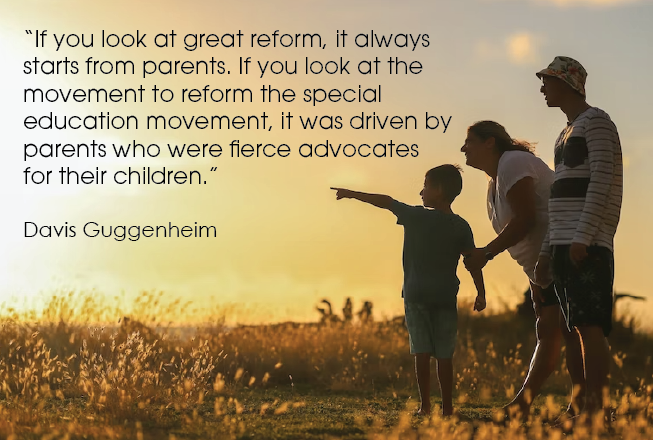Although the school year has officially begun, it still feels like the “beginning of the year” for many of us. This is a time to recommit to building and strengthening partnerships between teachers, parents, students, and service agencies. IEP meetings are great places to build strong teams that work together for the benefit of our students. Youth should be included in all aspects of transition planning prior to IEP meetings, participate in the IEP meetings as much as possible, and understand what their participation might look like.



Students, Families, and IEP Meetings
As students prepare to return to school in a few weeks, they may feel a mix of emotions. For some students, summer break was positive, and they may have participated in family events, vacations, and travel. For other students, this may have not been the case due to a variety of reasons over which they had little control. Educators should be sensitive to their students’ range of experiences during the time away from school. No matter the experiences, these can add to the students’ skills and self-awareness.
Many IEP meetings occur in the fall. Although it takes time to prepare for these meetings and to identify and include the student’s team, it is important work that makes a positive difference in the year ahead.
Families/caregivers are instrumental in preparing and encouraging their students to attend and participate in IEP meetings. Make sure families/caregivers know that when transition services begin (by the age of 16, or earlier when appropriate), students must be invited to attend their meetings. Don’t wait until the last minute to share this information. Some families may not be comfortable with their students attending an IEP meeting. If this is the case, listen carefully and address their concerns.
Helping families to understand the importance of student participation can begin early. This provides students who may be hesitant to attend and contribute to their IEP meetings time to become more comfortable doing so and to learn more about the transition process. It also provides opportunities for families/caregivers to support their students’ self-advocacy skills and build stronger IEP teams. Elementary school is not too soon to include students in even a small portion of the IEP meeting.
Teachers are powerful instigators in building relationships with families by sharing information and knowledge about their students’ programs and services. Here are some ideas you may want to share with families/caregivers.
Tips for Families/Caregivers to Support their Students in IEP Meetings
Discuss what to expect and find out what your student needs from you to feel comfortable participating.
- Ask them about their interests, strengths, and what they need to be successful in their classes.
- Ask them what they need to help prepare for life after high school.
- Encourage them to share this information at the IEP meeting. This should already be in the IEP, but this can confirm the information or help to revise it.
- If your student doesn’t want to attend, ask them why and help them feel more comfortable doing so. If they still don’t want to attend, you can share the information you’ve learned and advocate for them.
Ask to see a draft of the IEP prior to the meeting so you can talk about it with your student. Review the transition plan in the IEP.
- Find the strengths, preferences, interests and needs.
- Find the “postsecondary goals” for education or training, employment, and living skills, if appropriate.
- Look for the annual goals.
- Be prepared to share your thoughts on these at the meeting and support your student to do the same.
Find out who will attend the IEP meeting.
- You and your student can invite others to join you.
- Your student may want to invite a teacher or others to support them.
- If someone from an adult service agency may attend (e.g. Division of Vocational Rehabilitation, Developmental Disabilities Administration), you will be asked for permission to invite them prior to the meeting. Or, if your child is 18 or older, they will be asked for permission.
- You can also suggest inviting an agency representative.
For more information to share with families/caregivers, take a look at Pacer’s Parent Tips for Transition Planning (PDF).

Post-School Survey
The Post-School Survey for 2020-21 leavers is open through November 1. Remember that all surveys must be submitted as 100% complete by Nov. 1 at 11:59 p.m.
As of 10/18/2022, the survey is approximately 66% complete with a 57% response rate. The goal is to reach 100% completion with a response rate of 70% or higher. Congrats to the districts who have finished their surveys for this year!
- Support materials: Guidance for Educators page on the CCTS website
- Specific questions: email CCTS@seattleu.edu

Making Meaning: The Power of Post-School Outcome Data
Save-the-Dates: June 27-29, 2023, Virtual Transition Forum
Post-school outcome (PSO) data provide a picture of life after high school for former special education students in relation to postsecondary education and employment. Join CCTS to learn how to use PSO data to inform practice around transition services including instruction, development of transition plans, activities, and agency collaboration.
Stay tuned for details and registration!

Self-Paced Online Training
Transition training materials are available in self-paced, online formats. Each training includes a workbook and a series of modules that can be reviewed individually or with a group.
- Writing Effective Transition Plans (9 modules)
- Student-Led IEPs (6 modules)
- Developing Job Shadow Experiences (7 modules)
- Partnerships for Inclusion: Special Education and Career Technical Education (5 modules)
